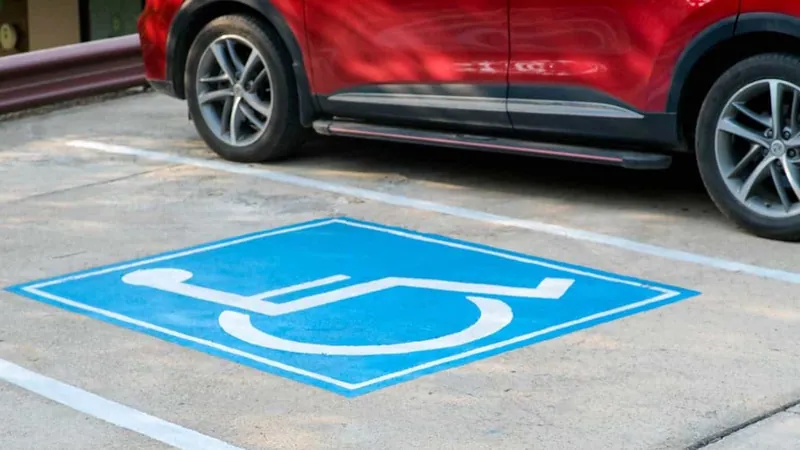
Husband Takes Extreme Measures: Wrecks 53 Cars to Protest Disabled Parking Violations!
2025-04-08
Author: Kai
A Husband's Dilemma
On the night of March 24, 2025, police arrested a local man after they caught him in the act of using a screwdriver to puncture car tires. This brazen display of vigilante justice came in response to the constant struggle faced by his disabled wife, who requires specific accommodations that many non-disabled drivers have frequently ignored. Despite his anger being rooted in a valid cause, his decision to take matters into his own hands has resulted in serious legal consequences.
During his police interrogation, the man revealed the true extent of his actions—53 vehicles targeted for illegally occupying accessible parking spots. He explained how his wife’s mobility limitations had repeatedly placed her in precarious situations, struggling to find safe and appropriate access. His actions, therefore, came from a place of anguish born from seeing her daily challenges exacerbated by thoughtless parking behavior.
The Legal Landscape of Disabled Parking
In France, the right to use designated disabled parking spots is strictly regulated, necessitating the display of an official mobility inclusion card. These spaces are not simply a luxury; they are critical for enabling individuals with mobility issues to access public spaces and services. Carers and those facing mobility challenges depend on these spots for essential tasks, and regular violations can severely impact their quality of life.
The penalties for illegally parking in these spots can be steep, with fines reaching up to €135 (around $145). Yet, despite these regulations, such violations remain disturbingly prevalent, reflecting a broader societal issue of neglecting the needs of vulnerable populations.
Rising Awareness and Advocacy
This incident has sparked significant dialogue on the broader implications of disability rights enforcement. While the husband's approach cannot be legally justified, many advocates resonate with the frustration he displayed. The obstacles created by illegal parking can be harrowing for disabled individuals, depriving them of access to crucial services and normalcy in their lives.
Moreover, the case emphasizes the gap between regulations and their enforcement. Current systems rely heavily on citizens reporting violations or sporadic police enforcement, leaving many issues unchecked. This scenario illustrates how a lack of consistent enforcement leads to an ongoing cycle of frustration and abandonment for people with disabilities.
Community awareness and education could be transformative in addressing this issue. Many individuals may park in these spaces without understanding the profound impact it has on those who genuinely need these accommodations. Increased education about the importance of accessibility could help foster a culture of respect for all members of society.
A Wake-Up Call for Societal Change
This incident serves as a crucial reminder that accessibility is not merely a burden placed upon others; it is a fundamental right that empowers individuals with disabilities to engage fully in society. As we reflect on the tragic actions of this husband, it is imperative that communities come together to cultivate awareness, enforce regulations consistently, and prioritize the dignity and respect of individuals with disabilities.
While taking the law into one's own hands is never the solution, this incident urges us to examine how societal values can shift to ensure that the needs of all citizens, especially the vulnerable, are recognized and honored. Will we rise to the challenge and advocate for a more inclusive future? The answer to that question lies in our collective response.

 Brasil (PT)
Brasil (PT)
 Canada (EN)
Canada (EN)
 Chile (ES)
Chile (ES)
 Česko (CS)
Česko (CS)
 대한민국 (KO)
대한민국 (KO)
 España (ES)
España (ES)
 France (FR)
France (FR)
 Hong Kong (EN)
Hong Kong (EN)
 Italia (IT)
Italia (IT)
 日本 (JA)
日本 (JA)
 Magyarország (HU)
Magyarország (HU)
 Norge (NO)
Norge (NO)
 Polska (PL)
Polska (PL)
 Schweiz (DE)
Schweiz (DE)
 Singapore (EN)
Singapore (EN)
 Sverige (SV)
Sverige (SV)
 Suomi (FI)
Suomi (FI)
 Türkiye (TR)
Türkiye (TR)
 الإمارات العربية المتحدة (AR)
الإمارات العربية المتحدة (AR)